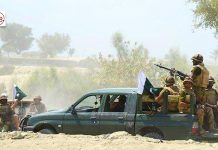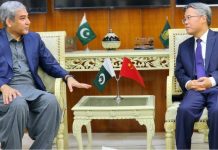Earlier this week, thousands of girls across Afghanistan arrived for lessons on the day the secondary schools were due to open for them since the Taliban seized power in Afghanistan. They were told that the schools will remain closed indefinitely and that they should go home. With their hopes slashed and tears running down their faces, the girls returned to their homes, unsure whether they will ever see the face of the school again.
The photos of the despondent Afghan girls spread on social media, engendering international outrage over the Taliban’s U-turn on girls’ education in the country. Despite all the promises of a moderate rule, the Afghan Taliban are once again on the same track as they were two decades ago.
As the international outrage grew over the U-turn, the official response from the Taliban was unclear and contradictory. They blamed the school closure for several reasons, like the supposed lack of qualified teachers. The Taliban said that they need to create the “appropriate environment” and also select a uniform for the girls before reopening the schools.
An official statement from the Taliban’s ministry of education said that the reopening of the schools will be postponed “until further notice when a comprehensive plan, in accordance with Sharia and Afghan culture, is developed.”
Experts argue that the decision to close schools for girls over 11 is nothing to do with uniforms. It reveals deep divisions among the party lines on the future rule in Afghanistan. The chaotic nature of this policy reversal suggests that the group’s central leadership decided at the last minute to overrule their Ministry of Education, nervous about alienating their most ultra-conservative members.
Powerful figures in the Taliban leadership, including the acting Prime Minister Hasan Akhund, are believed to be ideologically opposed to sending girls to schools. It is reported they consider girls education immoral and against the local culture. According to some claims, Akhund was even heard saying that he did not want to see girls going to school in his province Kandahar as long as he lived.






























